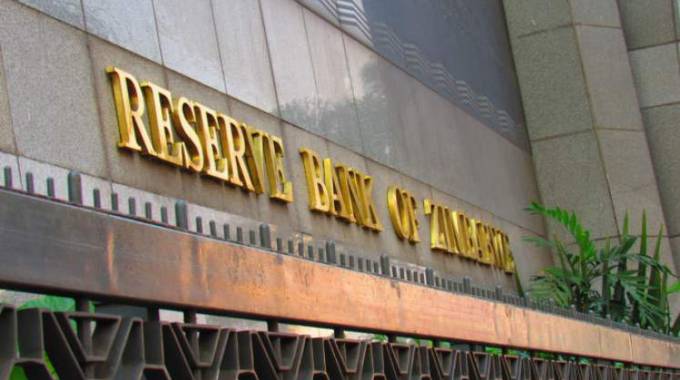
The Sunday Mail

Business Reporter
The measures that will be rolled out soon to stabilise the exchange rate should also include fine-tuning the Reserve Bank of Zimbabwe (RBZ)’s weekly foreign currency auction to enhance its efficiency, economists say.
Experts have been pushing for the auction to be refined and modelled similarly to the Dutch Auction System.
It is also believed that clearing the backlog at the auction is critical to strengthening market confidence.
After more than a year of relative exchange rate stability following the introduction of the auction system on June 23, 2020, the Zimbabwe dollar has come under renewed inflationary pressure.
The central bank blames disproportionate demand for US dollars and lingering fears of hyperinflation for the current volatility.
The contagion effect from the war in Ukraine, which has disrupted global supply chains, is also putting pressure on the markets.
Government has, however, promised to address current market aberrations, which it views as unjustified especially given the country’s strong economic fundamentals.
Zimbabwe generated US$9,6 billion in foreign currency receipts last year, while inflows totalled US$2,4 billion in the first three months of this year, up from US$2,04 billion in the same period a year ago.
Economist and Monetary Policy Committee (MPC) member Mr Persistence Gwanyanya told The Sunday Mail Business that “Government is very clear that in the current environment of confidence deficit, any negative issue will have a huge impact on the exchange rate”.
“External shocks related to the Russia-Ukraine conflict contributed to the spike in prices and obviously (by extension caused) exchange rate depreciation,” he said.
Allocations from the auction, he added, were likely to improve especially after the resolution of a dispute between platinum miners and authorities over the raw exports tax, which prompted producers to suspend shipments in the first quarter.
He said behavioural issues and the propensity to hold US dollars to local currency were some of the factors fuelling the depreciation of local currency.
“So, the Government, together with the Reserve Bank, came up with a package of measures. So, this package of measures is intended to tackle the issue of exchange rate head-on and in a more permanent way.”
The central bank has since committed to limit forex allocations to the amount of money it has.
Professor Gift Mugano said there was need to prevent excess liquidity from infrastructure projects from finding its way into the market.
The RBZ insists there is nothing that warrants the current depreciation of the local unit as current deposits in the market at $313 billion – equivalent to US$1,3 billion at the current exchange rate – can be more than covered by forex deposits of US$1,5 billion.
The bank also said it had tightened money supply growth from quarterly growth of around 20 percent early this year to 5 percent to limit excess liquidity from going into the market.
Some of the interventions that would soon be made by Government are targeted at promoting the use of the Zimbabwe dollar.
“As a confidence-building measure, the Government must also be able to inspire through increased use of the Zimbabwe dollar. We want that to happen in a more formidable way,” said Mr Gwanyanya.
The measures would further complement interventions announced at the end of 2021, which include allowing exporters to pay up to 40 percent of their taxes in local currency.
Miners were also given the dispensation to pay 50 percent of royalties in local currency.
Fifty percent of vehicle import duty can now also be paid using the local unit.
“The Government must be seen to be in favour of its own currency; taxes, duties and so on, but we want more obligations to be payable in Zimbabwe dollars.
“More importantly, there is need for support from the Government, being a generator of foreign currency, to support the auction system in a big way,” he said.
Economist Mr Eddie Cross said the central bank needed to maintain a hawkish stance to restricting money supply growth, saying banks were pumping too much liquidity into the market through loans.
In March, the central bank said loans and advances from banks grew by 76 percent to $230 billion in 2021 compared to $144 billion over the same period in 2020.



